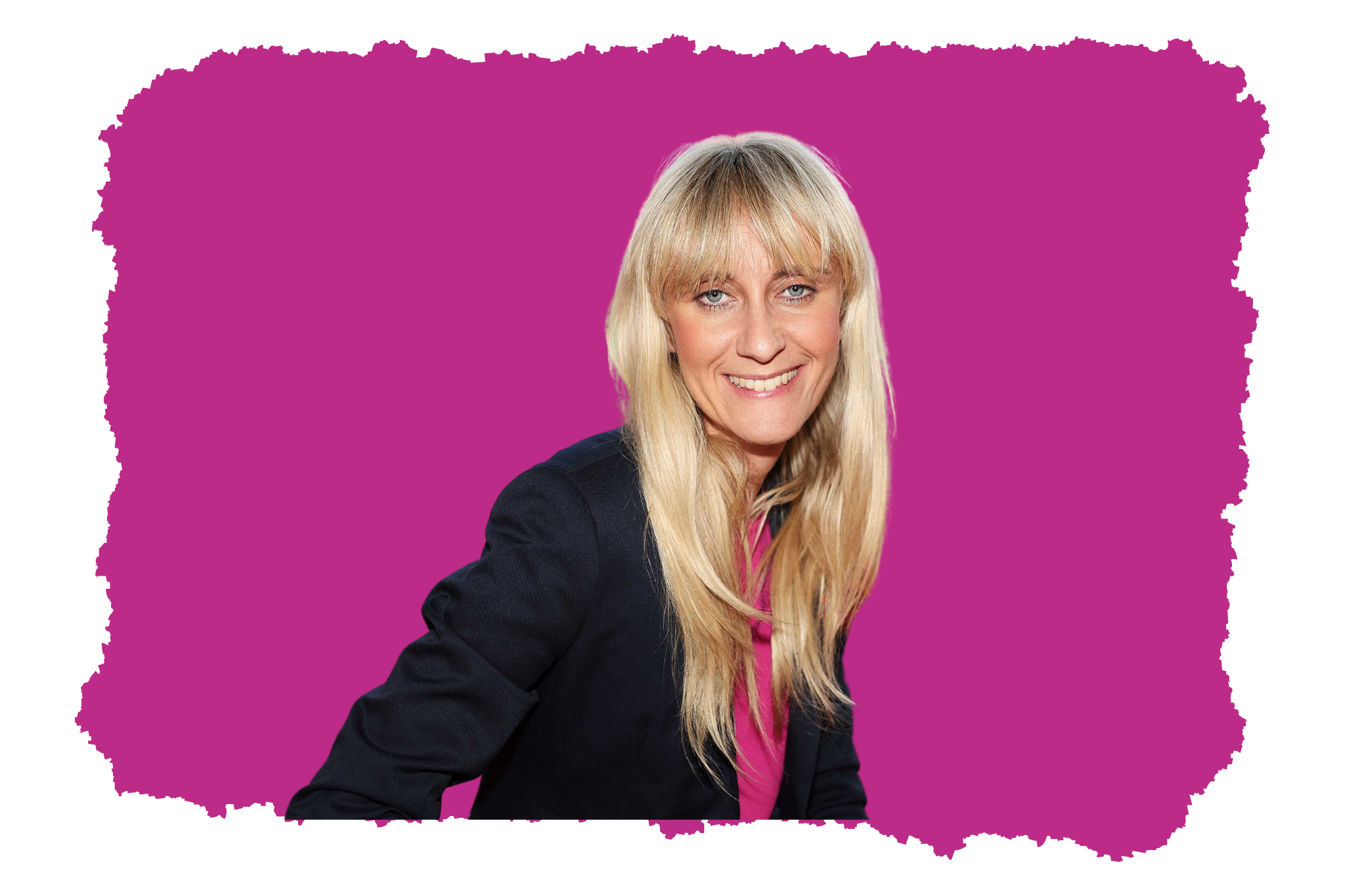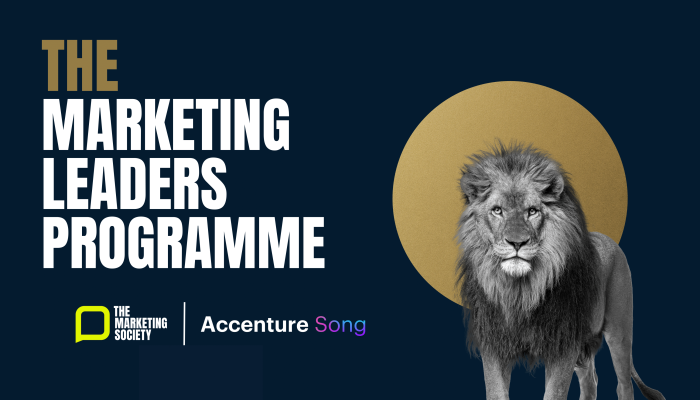Achieving true gender equality has been a frustratingly slow process, with progress often feeling incremental. 2024's International Women's Day theme - "Invest in women: Accelerate progress" - serves as a powerful call to catalyse real, meaningful change.
Investing in women and girls is not just the right thing to do, but a strategic necessity to unlock human potential globally. Research consistently shows that gender diversity leads to better business performance, economic growth, and more resilient societies. When women have equal access to education, healthcare, economic opportunities, and leadership roles, entire communities benefit.
Yet despite the well-documented advantages, stubborn gender inequalities persist across industries and cultures. Women still face disadvantages in areas like pay equity, workforce participation, legal protections, and political representation. Eradicating these ingrained biases requires a multi-faceted investment - of resources, opportunities, and sustained effort.
This year, we asked women from across the corporate world to share their perspectives on what meaningful investment looks like to drive women's empowerment and accelerate progress. From male-dominated fields to the executive level, their insights underscore both the gains made and the critical work still required.
As you read their compelling experiences and visions, we hope you feel inspired to join this important movement. Whether providing mentorship, implementing equitable policies, or amplifying diverse voices, each of us has a role in investing in women for a more just and prosperous future.
What does this year's IWD theme "Invest in women, accelerate progress" mean to you personally? Why is it an important theme?

Whilst over the years women's diversity has improved in Asia Pacific and internationally, statistically the number of females in senior CEO and CMO roles is still not increasing dramatically. This shows that there is still a huge amount of work to be done.
This year’s IWD theme “Invest in women, accelerate progress” is especially meaningful to me. It is an important theme due to the word “progress”. Often the word progress is not associated with female leadership, but more with male leadership. I am an Asian and I grew up in a humble society. In Asian culture, progress stands for a meaningful word. However, post-COVID, the definition of progress has largely evolved across generations – GenZ, GenAlpha, millennials, baby boomers. Progress is no longer the traditional linear approach. In fact, data has shown that people seek progress in a more multi-faceted way – personally, at work, and home – as they lead an integrated ONE-LIFE. Now, how does this link and integrate with females? Data has shown that females are good at multi-tasking, and females are also good at balancing Emotional and Intellectual quotient when they lead. We have the qualities that can help propel this new definition of progress – which is multi-faceted, all-rounded and interspersed between work and life, personal and professional integration.
So, what needs to be done to “invest in women, accelerate progress”?
- We need more female allyship. Allyship that is not only from male champions but also more females championing each other.
- We need to celebrate authentic, used cases of imperfection. Why? Consumers esp. GenZ want authentic stories – cross-culturally and used cases of imperfection will inspire new leadership.
- We need more institutions and corporations to champion female leadership – not just looking at the number and KPI and metrics, but to really “walk the talk”.
- We also need to start young, start with the girls in school and promote female leadership and their authentic voice young.
- Most importantly, we need all females to have the courage – to own their own voice and strive to be the best version of themselves.
- Foo Siew Ting, Global Chief Brand Officer and Head of Insights at HP

For me, this year’s International Women’s Day theme resonates deeply on a personal and professional level. To acknowledge and recognise that equality requires input, effort and investment speaks to the power we all possess to grow and appreciate. When women are empowered, societies become more resilient, adaptable, and inclusive.
Investing in ourselves is a crucial part of the picture. Often, we underestimate our worth and play down our potential. As host of The Marketing Society’s THINK EQUAL podcast, I would hear from my guests that lack of self-belief is holding many women back from success. I would like to see more women investing in themselves by dedicating time, energy and resources to personal and professional growth.
Of course, we must invest in others — supporting fellow women in their endeavours — is vitally important. When we uplift and empower each other, we create a ripple effect of positive change. I’ve been supported by many wonderful women throughout my career and I am grateful for that. I intend to pass my learning on to others and play my part to accelerate progress towards equality.
- Leanne Foy, CEO & Fouder of Foy&Co
My little girl is five years old, and she loves martial arts. Last week she went for her grading, to see if she was ready to move up to the much coveted orange belt. It was pretty conspicuous that, out of 12 children, she was the only girl.
As she listened to the teacher, showing respect, and at the appropriate time, demonstrating her coordinated and solid martial arts movements, it struck me that the opportunities, support and education that she enjoys have bred confidence and resilience in her, which has contributed to her success.
I may be over-egging this – she’s five, I know – but she’s lucky enough to have a mother and a father who are able to support her educationally and emotionally. We are both in the corporate world and are what some might describe as assertive (others might use different terms) and pragmatic role models.
But what about the little girls who don’t have that support?
This year’s theme is so broad as to have different interpretations depending on which country you live in, what your socio-economic status is, or what industry you work in. Its broadness is its beauty, as undeniably, there’s a wide spectrum of work that needs to be done to reap the collective benefit of investing in women globally, across the board. Doing so will further opportunity, human rights, education, financial inclusion, respect, and independence.
There’s a beautiful Shakespeare quote: ‘She believed she could, so she did’. Whilst romantically penned, unfortunately just believing is not enough (there’s that pragmatism). Governments, large corporations and those who can influence and create change have a duty to take the aspirations of our next generation of women, and to make them a reality.
There is plenty to do: Female Genital Mutilation still happens; child marriage still happens; a lack of female leadership still happens; and financial imbalance still happens - 340 million women and girls are projected to live in poverty by 2030, and inadequate access to education and healthcare still happens - 110 million girls and young women are projected to remain out of school by 2030.
I won’t waste the readers’ time by quoting stats on why investment in women is needed. At this stage, I would hope it is a no-brainer.
But the intention-action gap needs to lessen. Progress isn’t always quick, but more investment in supporting women leads to an accelerated journey.
It shouldn’t be taking this long.
- Jane Morgan, Senior Managing Director at FTI Consulting
Hong Kong is one of the richest cities in the world, but there's no money for professional women’s basketball. Schools are typically pathways into professional basketball, yet our female student-athletes can only aspire to school awards. Worst of all, that’s all that’s expected of them; they’re not expected to excel academically. With unremarkable academics and no path into professional sports, many don’t know what to do after graduation.
This is a waste of potential. These hard-working girls know how to utilise determination and grit on the court, but not beyond. Even though our city is always looking for talent, we’re overlooking those in our own backyard.
I started Strive Foundation with my husband to invest in these young talents. We use elite basketball as an identifier of potential by training them in basketball, academics, and mental fortitude to get these girls into world-class universities abroad. This way, they learn not just in the classroom or on the court, but in life.
In 2020, Yannie Chan became Hong Kong’s first woman to play basketball in America’s prestigious NCAA (National Collegiate Athletics Association). We spent two COVID years improving her basketball skills, grades, and English, along with building the mental strength to ignore all the naysayers to reach for goals no one else can see.
Yannie’s achievements give us hope. Her story resonates not just with young female athletes across Hong Kong who see a different path, but also with professional male athletes who publicly support her, to girls and boys wanting advice and selfies.
This is what happens when we invest in our female athletes. By the end of 2024, we’ll have five girls playing basketball in the US. They will also get a better education and see the world in previously unimagined ways. Our young women will grow beyond our training and become inspirations for the next generation.
- Angela Wong Director, Corporate Communications and Administration at Jebsen Group
In your opinion, what are the most important areas that need investment to truly accelerate progress for women's rights and gender equality? Can you provide some positive examples you have seen of successful investments in women and girls.

It is a well-known fact that the status of women correlates directly with a nation's economic health. By investing in half of their population, nations can boost economic growth, reduce poverty, and create a more equitable and prosperous society.
One of the primary economic challenges faced by women is the "motherhood penalty" – a persistent trend of reduced wages for mothers that often results in career setbacks, impacting their earning potential for at least a decade. When combined with a 65% gender wage gap and the “pink tax” (female products being more expensive than those made for men), it creates serious financial limitations for women.
Therefore, investing in accessible and affordable childcare can increase female workforce participation, positively impacting household incomes and national economies. A positive example worth mentioning is the cultural acceptance in Poland of regularly bringing children to the office. Instead of hiring a nanny, parents pick up their kids from school during lunch breaks, allowing them to play together (quietly!) or do their homework for a few hours in the afternoon before going home together.
One of the latest work environments to embrace this trend was the Polish Parliament, which launched childcare in January. This initiative was in response to the contrasting reactions when a female deputy and the male Speaker of the House brought their children to sessions. Negative comments were directed at the mother, while positive feedback was given to the father. This prompted the Speaker of the House to address the disparity and the absence of parental leave policies, despite 20-30% of female deputies in the parliament.
- Sabina Jasinska, Chief Growth Officer at Codec AI
What changes have you seen in recent years when it comes to investing in women and girls? What progress still needs to be made?

The last decade has brought sweeping redefinition to workplaces across the MENA region. To a degree not seen before in the history of the region, women are fulfilling active roles in the private and public sectors, and the region is making strides in closing its gender gap, with governments setting ambitious goals and an increasing number of organisations adding gender diversity to their agenda. While government initiatives have been the primary drivers of the region’s female workforce participation rise over the last twenty years, the surge has also been supported by a perfect storm of economic and social change drivers, including some of the highest tertiary education enrollment rates in the world and a broadening of socially accepted roles for women within the region. There have also been pioneering organizations driving this change on the ground. While organisations and employers often overlook the potential of their female employees, some women also tend to underestimate themselves in the workforce and undersell their work and are less likely to put themselves forward for promotions in the first place.
To create and retain a high-performing team, organisations need to create more inclusive and supportive workplaces for all employees, not just women. This starts by better understanding workers' needs. Offering a wider range of options like flexible scheduling based on individual needs, permanent remote work options and even part-time work can make a big difference in attracting and retaining women. Business leaders should maintain open communication and a level of trust in employees encouraging them to prioritise their well-being and work-life balance. By taking these measures, employers will help boost productivity, improve employees’ mental and physical health and reduce turnover rates.
- Anja Petrovski, Marketing and PR Director at Audi Volkswagen Middle East

Women entrepreneurs are still at an advantage when it comes to investment. Though there are some great examples of female-founded businesses, there are still too many stories of women being told they need a man on their board to attract proper money. Investment’s obsession with more male-heavy areas such as pure technology firms also means that innovative female-founded companies are often overlooked.
On top of continuously assessing who’s investing and where, there needs to be more support to educate female founders on how to play the investment game.
Organisations like 12ronnies which is free to join, really helps.
- Laura Jordan Bambach, Founder and Chief Creative Officer SheSays/OKO
Where do you see the biggest opportunities for investment to accelerate progress for women in your industry?

The marketing and advertising industry is uniquely positioned to influence societal perceptions and advocate for gender equality in a few key areas. The biggest one for me is Representation - Creating inclusive advertising campaigns that authentically represent women's experiences, challenge stereotypes and showcase positive role models.
Crafting inclusive advertising campaigns extends beyond showcasing women in prominent roles. It involves authentically portraying the multifaceted experiences of women, challenging harmful stereotypes and presenting positive role models. This means moving away from one-dimensional depictions of women as passive consumers or objects of desire and instead showcasing their autonomy, resilience and diverse accomplishments. Through these efforts, the industry can influence social narratives, inspire positive social change, and cultivate a more inclusive and empowering media landscape.
- Treesha Puncho, Commercial Director at Codec

Not just on International Women’s Day, but every day, we need to put focused effort into setting women in the workforce up for success and help accelerate their progress. For instance, only 26% of women make up data and AI positions in the workforce, according to a 2020 report by the World Economic Forum, and we all see how AI is rapidly changing this landscape. Closely tied to the acceleration of AI, we’ve seen the ever-present need to invest in STEM, and I would argue STEAM, programs and exposure for women to allow them the opportunities to discover careers in these areas.
I happen to be fortunate to be a woman in STEAM who was exposed to these areas as early as high school. I graduated college with an engineering degree and then an MBA in marketing which has served me throughout my career. The skill development I achieved to be a "creative engineer and practical marketer" has allowed me to consistently approach my work with a unique perspective. We need to give more women the opportunity to explore different career pathways and develop their skills that can be applicable to a wide variety of careers and roles, wherever their interests may lead them.
- Michelle Froah, Global Chief Marketing Officer at ETS
 Unlocking the full potential of women in the automotive industry is not just about business; it's about empowering individuals and fostering a community that thrives on diversity. Imagine witnessing each woman in our group, not just learning and shining in their roles, but also investing in their personal growth while supporting each other.
Unlocking the full potential of women in the automotive industry is not just about business; it's about empowering individuals and fostering a community that thrives on diversity. Imagine witnessing each woman in our group, not just learning and shining in their roles, but also investing in their personal growth while supporting each other.
It's more than a corporate triumph; it's the beauty of solidarity and shared success. Investing in education and training programs becomes an investment in the dreams and aspirations of these women, providing them with the tools to navigate a traditionally male-dominated industry. Leadership development isn't just about climbing the corporate ladder; it's about recognizing and nurturing the unique strengths and perspectives that women bring to the table. Picture the impact of networking and mentorship platforms designed exclusively for women in the automotive field. It's not just about professional connections; it's about creating a sisterhood where experiences are shared, advice is given, and career paths are forged together.
Dive into the world of diversity and inclusion initiatives, where the investment is not just in programs but in creating environments where every woman feels seen, heard, and valued. It's about breaking down barriers and building a workplace culture that celebrates differences. Imagine the stories that research and data collection could tell—the challenges, triumphs, and the untapped potential waiting to be discovered.
Advocacy and awareness campaigns aren't just about changing perceptions; they're about rewriting narratives and inspiring a new generation of women to see themselves thriving in the automotive industry. And then there's the personal touch of flexible work policies, recognizing that women are not just professionals but individuals with multifaceted lives. Investing in the community, especially in young girls exploring STEM fields, is an investment in the future—the future where the automotive industry is a place where everyone, regardless of gender, can flourish. By engaging in these opportunities, we're not just investing in the automotive industry; we're investing in a narrative of empowerment, growth, and shared success that goes beyond corporate boundaries.
- Cristina Guida La Licata, Marketing Communications Consultant

In the legal industry, there is a significant opportunity to invest in creating a pathway for more female legal professionals to assume positions of leadership and influence that drive the strategy and growth of their organizations. Such investment should be directed towards disrupting traditional leadership models and adopting more inclusive approaches that provide equal opportunities for female leaders and rainmakers to thrive. For example, tailoring flexible work options for those in demanding roles creates a culture that not only normalizes flexible work arrangements but ensures that they do not hinder career progress. It also involves dedicating resources to employee assistance programs that provide robust support for managing work and personal responsibilities, safeguarding mental health and nurturing overall wellbeing.
On the development side, it is important to invest in building the leadership capital and leadership identity of females. This includes advocating for and empowering them to take on high-visibility initiatives that demonstrate their abilities to generate significant impact for their firm. As a marketing professional, I would like to see accelerated efforts into establishing female legal professionals as thought leaders in their areas of expertise, such as encouraging participation in speaking engagements and providing media training. This would also help to increase the representation of female experts in the media. As their expertise and perspectives gain visibility in the public sphere, this leads to a more inclusive and equitable perception of women as influential figures within the industry
- Siew Fong Yiap, Regional Director of Marketing and Business Development at Shearman & Sterling
 Working in a role within sports administration is an exciting and fulfilling experience, but with anything there are challenges. As a female navigating my way up the career ladder, I have been fortunate enough to have some fantastic female leaders around me who have supported me on my path to where I am today. Investment in people comes in many shapes and forms, but I believe there are some key areas that can help women in sport.
Working in a role within sports administration is an exciting and fulfilling experience, but with anything there are challenges. As a female navigating my way up the career ladder, I have been fortunate enough to have some fantastic female leaders around me who have supported me on my path to where I am today. Investment in people comes in many shapes and forms, but I believe there are some key areas that can help women in sport.
Developing a culture of safety and support for females in the business can create a much more effective working environment. Males supporting females in the workplace is key to this, but also understanding the challenges. If businesses invest in workshops or sessions to openly discuss the challenges that females can face in the workplace for example in 80% of meetings being the only women in the room. I have been part of sessions like this before and they have made a great difference to the way both males and females think and also highlight issues that most people hadn’t even thought about.
Businesses could also take a more proactive approach to living and breathing values of gender equality including working mothers and flexible working, gender-neutral language, ensuring there are opportunities for females at the senior leadership level and having the courage to call out behaviour that is not inclusive.
Mentorship programmes make a huge difference in not only providing invaluable support and guidance to aspiring women in sports business, but can also provide opportunities for women to build networks and foster a sense of community. On the flip side senior female executives should also be encouraged to serve as mentors to share insights, offer advice, and help navigate the unique challenges faced by women in leadership positions. Either developing a mentorship programme in-house or ensuring external opportunities are available to all female staff.
Finally, I would say to every female, remember to back yourself and just because you are a different gender doesn’t mean you can’t succeed, 50% of the world’s population are females! Take a look around as I am sure most people have faced similar challenges and there is nothing better than peer-to-peer support and asking for advice when you feel stuck.
- Mary Godbeer, ICC Senior Manager – Media and Communications
The powerful stories and perspectives shared here reinforce why this year's International Women's Day theme "Invest in women: Accelerate progress" is so vital. While great strides have been made, continued investment remains critical to ensuring women and girls have equal access to opportunities across all sectors of society.
Whether it's funding education initiatives, implementing equitable workplace policies, providing mentorship or driving law and policy reforms, there are myriad ways we can invest to accelerate progress. As these voices demonstrate, such investments pay enormous dividends - empowering women strengthens economies, businesses become more innovative and communities thrive.
While obstacles persist, from the pandemic's disparate impacts to the lack of women in leadership roles, these narratives also highlight the catalytic change that's possible through targeted investment and sustained commitment.
On this International Women's Day, let us be emboldened to invest with greater intention in accelerating women's empowerment and gender equality. For in doing so, we unlock transformative progress that creates a more equitable, prosperous world for all. The time to invest is now.
Published on 8th March 2024





